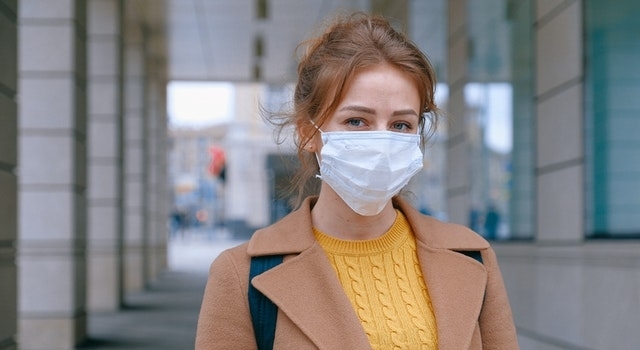
Dry Eye Syndrome Treatments At Professional VisionCare
Social distancing and face masks have become the first line of defense in preventing COVID-19. These protective measures are essential to fighting the virus’ spread.
While masks help protect you and others from COVID-19, eye doctors have seen an increase in dry eye cases among those who wear them.
If you’re seeking effective relief, contact Professional VisionCare in Lewis Center as soon as possible. We’ll offer the best solutions for your mask-associated dry eye (also known as “MADE”).
What is Mask-Associated Dry Eye?
Eye doctors have been seeing an increase in dry eye cases at their practice. Patients with existing dry eye syndrome complained that their symptoms worsened when wearing a mask, while other patients complained of first-time symptoms.
Dry eye symptoms result when fast movement of air caused by exhalation leads eye tears to evaporate. A face mask that doesn’t fit securely can push air from the mouth and nose upward onto the eyes.
What is Dry Eye?
Dry eye syndrome causes the eyes to feel gritty, sore, irritated, and dry, and can potentially damage the cornea, if left untreated.
Dry eye syndrome is typically caused by a number of reasons, including health and eye conditions, gender, age, and taking certain medications. Dry weather conditions, indoor heating, air conditioning, and not blinking sufficiently — which is common when staring at a computer screen — can also contribute.
How to Prevent Dry Eye
Here are some easy measures you can take to reduce dry eye:
Mask sure your mask fits correctly
If your mask doesn’t fit properly, your breath will escape from the top of your mask, potentially causing dry eye symptoms. To prevent this, choose masks that fit snugly under your eyes and around the bridge of your nose.
Limit your time in dry environments
If your mask is causing your eyes to feel dry, try to limit your time in windy or dry-air environments, such as windy outdoor weather and air-conditioned rooms.
Keep in mind that people tend to blink less frequently when staring at a screen or reading a book. Blinking provides your eyes with much-needed lubrication, so remember to blink!
Use a warm compress
If your eyes are irritated and sore, dampening a washcloth with warm water and placing it on your closed eyelids for a few minutes can help. The warmth of the water can help stimulate your tear glands to produce more liquid and oil to help keep your eyes lubricated throughout the day.
Use eye drops
Using eye drops can provide the extra lubrication your eyes need to prevent them from drying out. Your eye doctor can advise you on the best drops for your eyes.
Speak to your eye doctor
The best way to minimize your dry eye symptoms—whether caused by a face mask or something else—is to consult your eye doctor, who will examine your eyes and prescribe treatment.
Frequently Asked Questions About Dry Eye Syndrome
Q: Why do my eyes sting when I wear a mask?
- A: When wearing a loose mask the exhaled air goes into your eyes, which can cause your eyes to sting. So make sure it fits snugly around the bridge of your nose.
Q: What kind of face mask is best to prevent dry eye?
- A: Ideally, you should wear a face mask with a pliable nose-wire so that it can curve to your cheeks and nose, which reduces air directed toward the eyes.For more information about keeping your eyes healthy while wearing a face mask, contact Professional VisionCare in Lewis Center. We can help determine the underlying cause of your dry eye and offer you the best solution.































